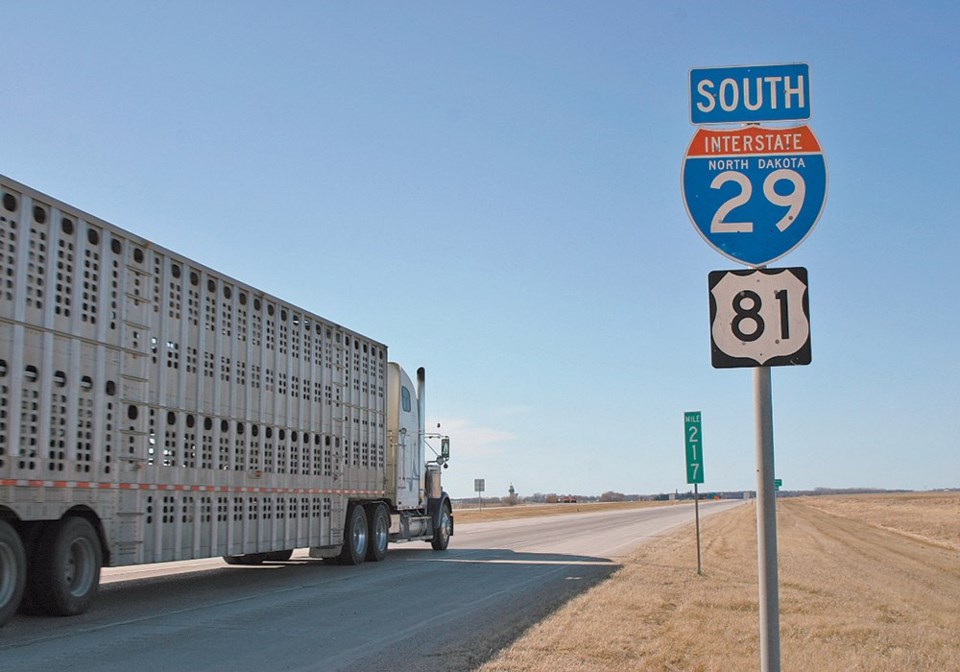WESTERN PRODUCER — Hog farmers are scrambling to find trucks to carry their pigs across the border.
With the joint Canada-United States vaccine requirement now imposed on cross-border journeys, a sudden shortage in truckers is leaving small shippers like farmers facing delays, cancellations and uncertainty about how to move their animals.
“We’re already hearing reports that shipments of weanlings have been cancelled because of a lack of trucks and drivers,” said Cam Dahl, general manager of Manitoba Pork Council, a few days after Canada’s requirement was imposed and before the U.S. one kicked in.
Manitoba’s industry is particularly affected because many of the weanlings produced in southern Manitoba are shipped to farmers in the U.S. Midwest. Cull sows are regularly shipped to U.S. packing plants.
Manitoba hog farmers also often rely upon U.S. feed imports, particularly in years following droughts like that of 2021.
“I’ve had reports of producers who were expecting B-trains of soymeal this week, and they’ve been cancelled,” said Dahl.
The sudden shortfall in truckers comes despite only a tiny minority, estimated to be less than 10 percent, of truckers who are unvaccinated.
Truckers had been exempted from many pandemic restrictions due to being classed as essential workers. However, vaccine mandates were instituted north and south of the border as part of a series of moves to encourage unvaccinated people to get vaccinated.
The trucking industry was already short tens of thousands of drivers before the mandates.
Those shortages hit hardest for small, independent shippers and those requiring more complicated hauling or deliveries.
That includes farmers who don’t have the same pull as significant manufacturers or distributors.
The particular challenge for livestock producers is that animals can’t be stockpiled until the trucker drought ends, nor do they always have room in barns to contain the ever-growing animals if new animals are being born or brought in.
Some truckers opposed to the vaccine mandate have organized a Vancouver-to-Ottawa protest drive and one from Nova Scotia to Ottawa, including rallies at cities along the route. The protesting truckers from the West left Vancouver Jan. 23 and were planning to arrive in Ottawa Jan. 29. Organizers have called this the Convoy for Freedom 2022 and have raised money on GoFundMe.
The Canadian Trucking Alliance, which represents trucking industry associations across the country, said it “does not support and strongly disapproves of any protests on public roadways, highways and bridges, especially those that interfere with public safety.”
It said truckers opposed to the vaccine mandates “can choose to hold an organized, lawful event of Parliament Hill or contact their local MP.”
It notes that Canadian truckers are vaccinated at about the same rate as the general population and that most truck drivers are continuing to move freight.
A previous protest at the Emerson, Man., border crossing disrupted traffic there Jan. 19.
The trucking problem exacerbates concerns about food availability and inflation, with supply chain issues hitting many industries that can’t access elements of their products or move their products to market.
Dahl said he hopes something can be done to resolve the situation.
“There’s got to be a way to let the truckers cross the border,” said Dahl, highlighting earlier flexibility.
“They found ways to keep those movements flowing and we need to do so again.”




